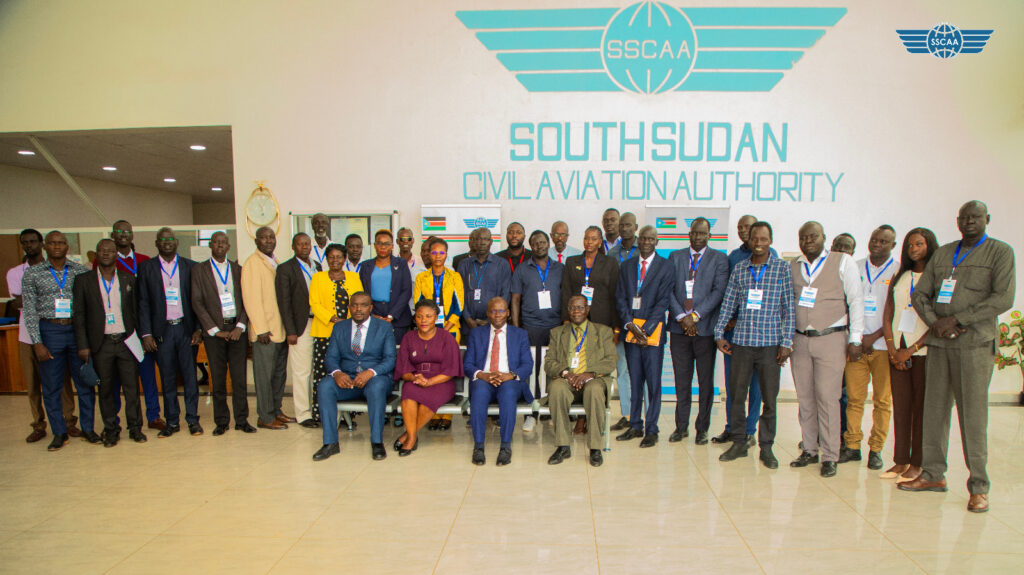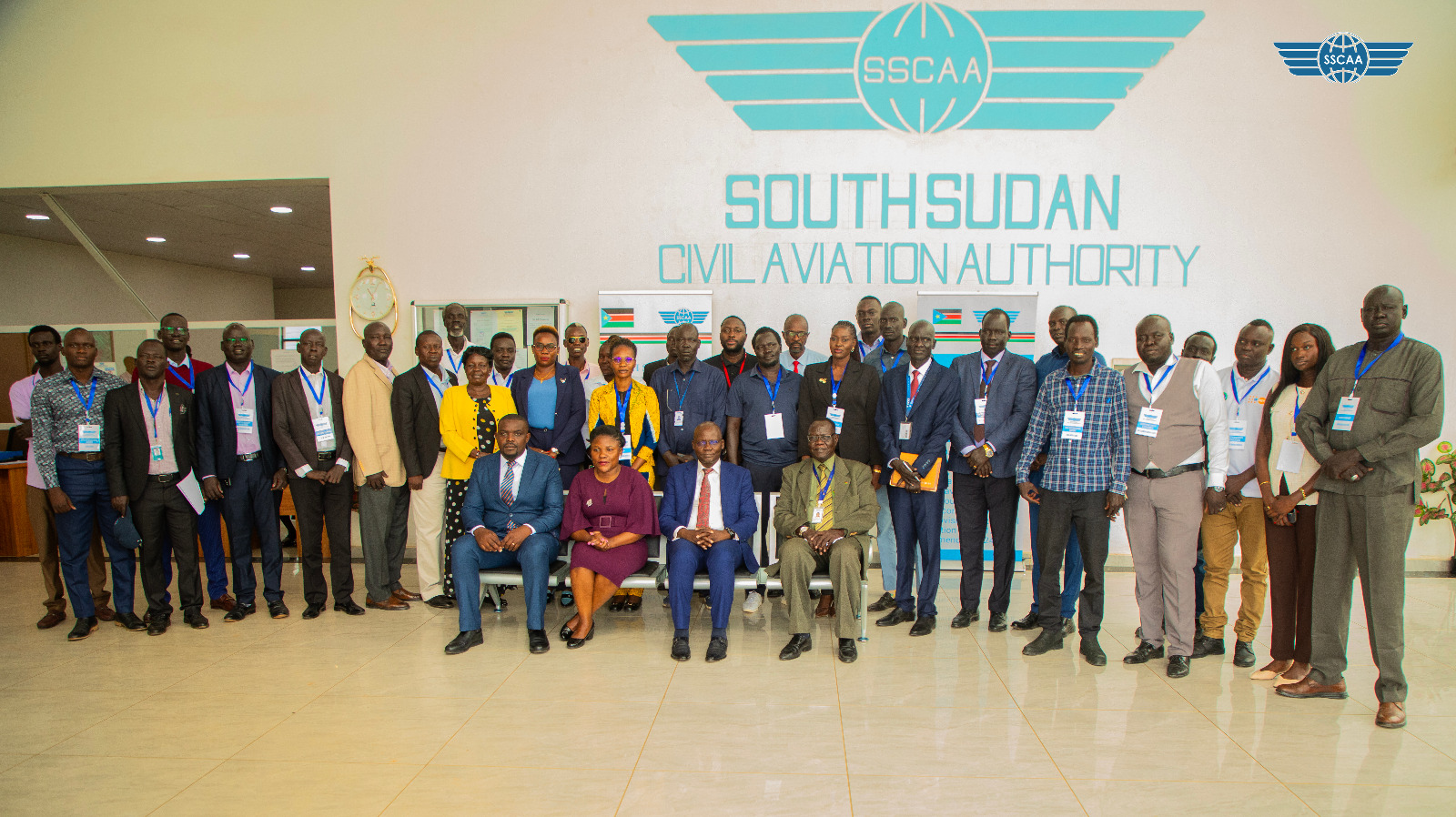South Sudan's English Daily Newspaper
"We Dare where others fear"

The South Sudan Civil Aviation Authority (SSCAA), in collaboration with the International Civil Aviation Organization (ICAO) and the Civil Aviation Safety and Security Oversight Agency (CASSOA) of the East African Community, held a four-day Runway Safety Induction Training and Aerodrome Certification Workshop from 4th to 7th August 2025.
The workshop, which brought together national and regional aviation experts, underscores the SSCAA’s commitment to advancing aviation safety and achieving compliance with international certification standards. This marks a significant step in the country’s effort to modernise its aviation infrastructure and regulatory systems.
Speaking during the opening and closing ceremonies, Hon. John Woja Elinana, Director General of the SSCAA, emphasised the authority’s unwavering focus on safety as the cornerstone of aviation development in the country.
“SSCAA is not just about maintaining structures, but also about building systems that support transparency and accountability. With support from the board, SSCAA is committed to investing resources to modernise all airports across South Sudan to improve the economy. These efforts are not only for the present, but they are also meant for the next generation.”
He further noted that aerodrome regulations have been submitted to the Ministry of Labour for approval, signalling the government’s readiness to align legal frameworks with ICAO certification requirements.
The event also convened experts from across East Africa, including representatives from the Kenya Civil Aviation Authority (KCAA) and ICAO’s Eastern and Southern African Office (ESAF), offering regional expertise and benchmarking practices.
Eng. Jackline Kwagala, Principal Aerodromes and Ground Aids Officer at CASSOA, delivered a comprehensive presentation on the five-phase aerodrome certification process. She confirmed that South Sudan is on track to become the 193rd signatory to the Chicago Convention, a global treaty that standardises international civil aviation operations.
“Upon inspection, we have witnessed major improvements in Juba International Airport’s runway safety,” she noted. “The SSCAA has made notable progress, thanks to its committed leadership and engaged staff. We have also developed a hazard identification form because airport safety is a collaborative and collective effort, not the responsibility of only one individual.”
She further emphasised that Article 28 of the Convention obliges each member state to provide airports and air traffic services in accordance with ICAO standards, a legal requirement South Sudan is actively pursuing.
Expanding the Certification Mandate
Eng. Joseph Gibril, Aerodrome Manager, highlighted the SSCAA’s readiness to license not only Juba International Airport but also regional airports, including Malakal, Wau, and Rumbek, alongside category E airports such as private and charter airfields.
He noted that certification procedures, licensing frameworks, and runway safety protocols were formally established in 2023, and the Inspector’s Handbook is now available for use by airport safety teams and regulatory authorities.
“The groundwork has been laid,” said Eng. Gibril. “Now we must implement and monitor it.”
Representing ICAO-ESAF, Mr. Elisha Omuya, Regional Officer for Aerodromes and Ground Aids, expressed appreciation for South Sudan’s hospitality and enthusiasm for the certification process.
“ICAO certification is a capital-intensive, five-phase process that requires political will, technical capacity, and sustained coordination. However, it is achievable — and South Sudan is heading in the right direction,” Omuya said.
Complementing these efforts is a national State Safety Program (SSP), led by Mr. Johnson Maroun, Director of the SSP. He noted that the SSP is helping to institutionalise a safety culture, promote transparency, and identify weaknesses in the current aviation safety system.
“South Sudan must now revise its State Aviation Safety procedures and align them with international best practices,” he added.
Hon. Michael Lopuke, Chairman of the SSCAA Board of Directors, offered a broader perspective on the strategic importance of these reforms.
“As a landlocked country, South Sudan relies on air transport for connectivity, trade, and emergency response. The future of our economy depends on having a certified, globally respected international airport,” he said.
He reaffirmed that Juba International Airport is on the path to certification and that certification is not merely a regulatory milestone, but also essential infrastructure for national development.
The Runway Safety Induction Training and Workshop has demonstrated the SSCAA’s growing capacity and its serious intent to integrate South Sudan into the global aviation community. Through coordinated efforts across government, regional agencies, and international partners, the country is now positioned to deliver on its obligations and unlock the full potential of safe, efficient, and certified air transport.




